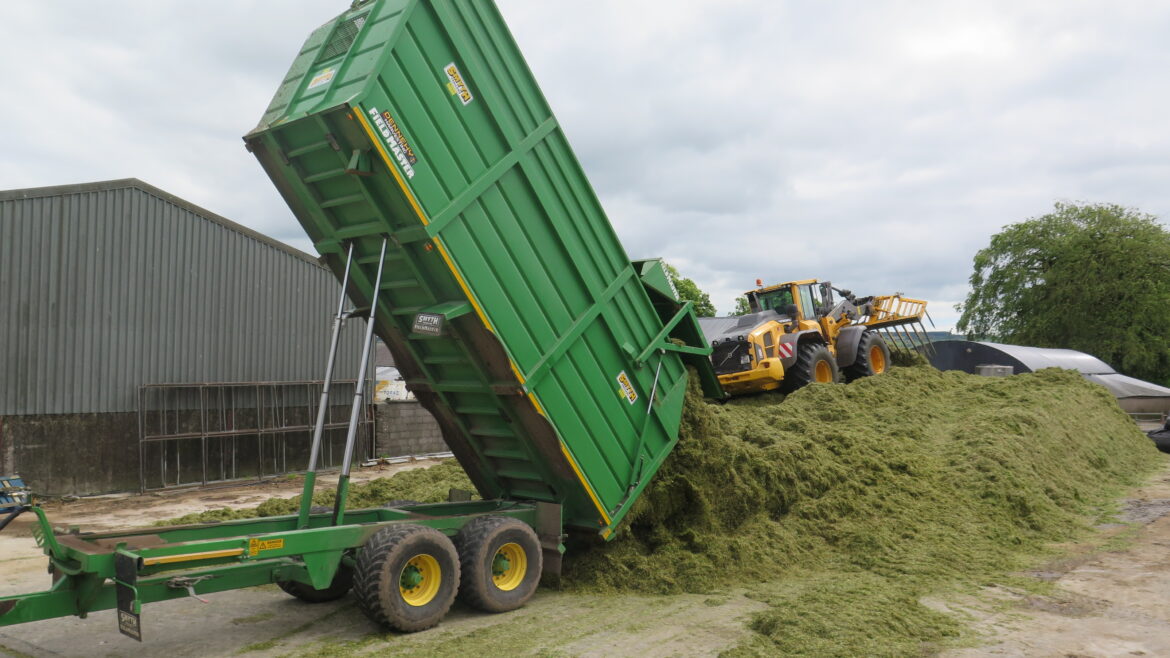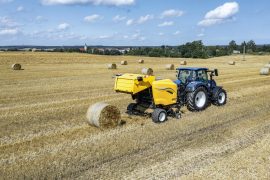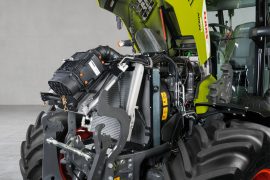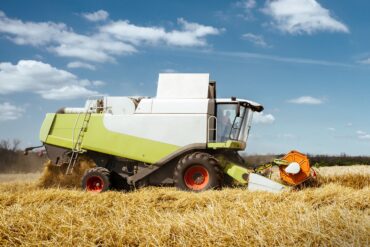The Association of Farm & Forestry Contractors in Ireland (FCI) in its Pre-Budget 2026 Submission, has called on the Minister for Finance and the Irish Revenue Commissioners to put in place a Mini-Job or Short-Term Worker Taxation system, similar to what is available in Germany. This would facilitate agricultural and forestry contractors and other rural employers who have short-term seasonal, and weather dictated skills requirements, to deduct a standard rate of 30% in tax and social security contributions, in addition to accident insurance contributions of 1.3%, for seasonal and part-time workers who are already engaged in other employment.
“The combination of high personal taxation levels and high employment levels are making it difficult to employ part-time or short-term seasonal employees in our sector which provides essential seasonal machinery services to more than 90% of Irish farms,” said John Hughes, National Chair of the Association of Farm & Forestry Contractors in Ireland (FCI). “The Association believes that adopting the German Mini-Job system would allow the Irish Agricultural and Forestry Contractor and the Farming sector to maintain and develop the necessary financial foundations for longer-term sustainability by making seasonal part-time employment in the agricultural sector more attractive,” he added.
“This high-cost employment situation based around the current tax credits system is now leading to a significant shortage of seasonal employees on which the Agricultural and forestry Contractors and farming sectors depend to operate machines during the peak and highly seasonal work demands of the Irish farming year,” said John Hughes. FCI estimates that of the 20,000 employees in the sector, in the region of 14,000 are part-time and seasonal employees. These part-time employees come from a range of existing employment across many industries and have worked weekends and during their holidays to support the harvesting efforts of agricultural contractors as they strive to meet the seasonal needs of Irish farming.
“The number of available part-time employees is declining significantly as it is no longer financially attractive for seasonal employees to work in our sector due to high personal taxation issues,” according to the FCI National Chair. “It is also no longer possible for employers in our sector to secure the necessary funds to make worthwhile payments to seasonal workers while striving to provide cost-effective and high technology machinery services to the Irish farming and food sector. There is an urgent requirement to put in place a personal taxation system that reflects the realities of the agricultural sector which is seasonal and highly weather dependent, and the German Government has provided the solution with the Mini-Job system that we urgently need to adopt,” he added.
The German Mini-Jobs System Explained
The German tax system allows the employer (an agricultural or forestry contractor) to deduct a flat 31% tax on income from part-time employees through a system of mini-jobs and/or a short-term employment system where the employees are registered with the German Minijob-Zentrale system (www.minijob-zentrale.de). “The German system allows small and seasonally based rural businesses, such as agricultural and forestry contractors and farmers, to employ seasonal workers in addition to that worker’s main employment, while allowing the employer to make a simple to administer flat-rate tax payment on their mini-job or seasonal employment, making the part-time or seasonal employment attractive to the employee,” according to FCI Research Director, Michael Moroney, who has visited Germany and researched the Mini-Job system.
The Cash Economy or Black Money as it is called in Germany, does not exist anymore in Germany because the income tax system allows the employer to deduct a flat 31% tax on income from part-time employees for their part-time employment, who already have an existing full-time job. This system is significantly easier to operate than the current Irish tax credits system where part-time employment can be very costly for the agricultural and forestry contractor and the farmer. For this reason, short-term or seasonal work in Ireland has become less attractive to the employees.
In Germany, this employment system is called a ‘Mini-Job’ or marginal employment (geringfügige Beschäftigung) rule, where Mini-Jobs employees in all sectors of the economy and short-time seasonal workers in agriculture, are registered with the tax authorities. The German Mini-Job system allows part-time workers (Mini-Jobbers) who operate machines in agriculture to earn up to €556 per month tax and social security contribution-free in 2025. This equates to an hourly wage of €12.82 (the current statutory minimum wage) and an approximate monthly working time of 43 hours.
In the Irish situation this would equate to earning up to €648 per month tax and social security contribution-free in 2025 as this is based on an Irish hourly wage of €13.50 per hour (the current statutory minimum wage which is 5% higher than the German rate) and an approximate monthly working time of 48 hours over a four month period.
In Germany, currently the employer must pay:
– 13% for statutory health insurance,
– 15% for statutory pension insurance, and 2% flat-rate tax.
These amounts total approximately 31% in tax and social security contributions. In addition, there are accident insurance contributions of 1.3%. However, with this form of income, the employee may not exceed an annual earned income limit of €6,672 from their part-time Mini-Job employment. (This would equate to earning €7,000 in the Irish situation). If the Mini-Job employee earns more, they must pay their share of regular employees’ contributions (statutory health, pension, nursing care and unemployment insurance) on all income.
Exceeding the monthly limit is permitted up to twice a year (provided the additional employment was unforeseeable), but the additional income is then limited to twice the monthly limit (€556 x 2 = €1,112). This means that a maximum of €7,784 (£6,712) per year is permitted (the employer must then pay 30% in social security contributions on these amounts).
Short-Term Mini-Jobs or Seasonal Workers
In Germany seasonal workers are a special case as they can work for a maximum of three months or 70 days, and it is considered a short-term Mini Job. The amount of the wage is irrelevant and there is no fixed income limit, provided that it is not the employee’s main source of income. Employers and employees do not pay social security contributions. The employer must pay accident insurance for each short-term employee.
The work must be occasional, not recurring and not run for more than a maximum of 18 consecutive days. The daily wage cannot exceed €150 (as of 2024) and the employer deducts a flat-rate tax of 25%. Social security contributions do not apply to short-term employment.
Short-term employment is temporary and therefore cannot be a person’s primary source of income to support themselves. Otherwise, this would be considered professional employment. Typical examples of short-term employment include temporary work during peak production periods in industry or agriculture, for example, harvest workers.
While there are generally no earnings restrictions for short-term employment. If the Mini-Jobber earns more than €556 per month, the employer must verify whether the employment is professional. In this case, it cannot be considered to be short-term employment. In Germany the short-term employment is automatically not professional if the Mini-Jobber:
- has a main occupation,
- is self-employed,
- is currently doing a voluntary social or ecological year,
- is in the Federal Voluntary Service or receives early retirement benefits.
“The Mini-Job Taxation proposal is just one of nine proposals put forward in the FCI Pre-Budget 2026 Submission,” said John Hughes. “Our sector, which now has an annual turnover of more than €1 billion, must now be adequately supported and financed. Failure by this Government to acknowledge this critical issue pertaining to the Agricultural and Forestry sectors will lead to business closures, and essential services required by the farming sector will become less available at critical seasonal times, impacting on future agricultural output and vital food exports. The proposals in this submission on taxation and spending reform will support Agricultural and Forestry Contractors to continue to deliver cost-effective and sustainable mechanisation services on Irish farms and in Irish forests,” he added.





